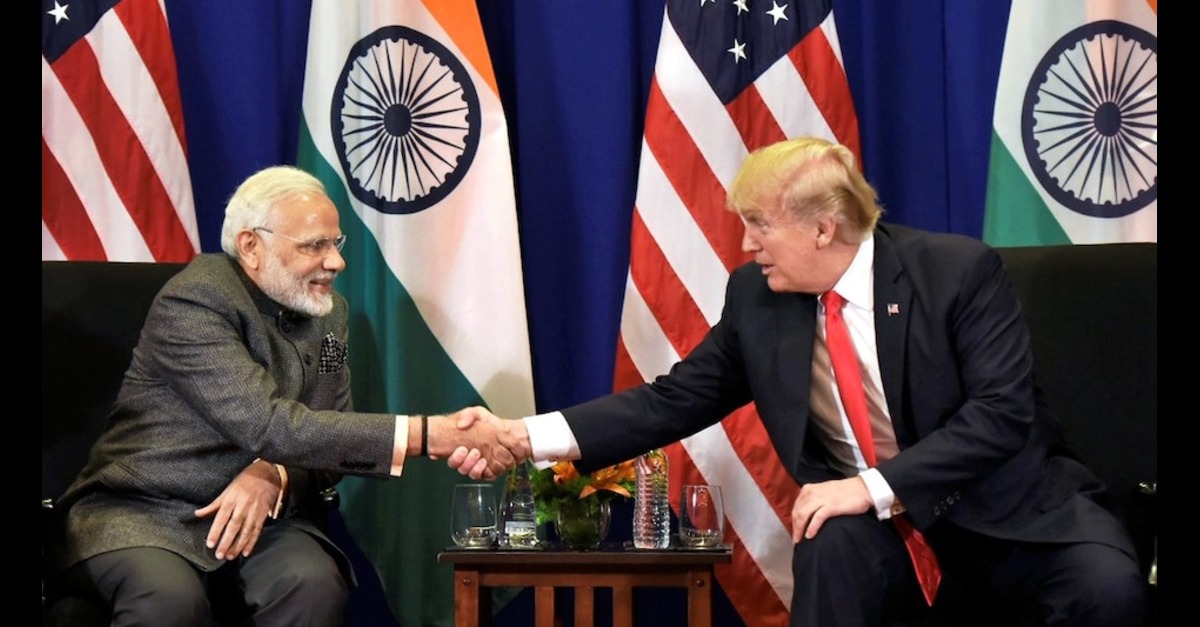ABSTRACT
The article aims to investigate the nature and scope of the United States’ engagement in the Kashmir conflict between India and Pakistan. By examining turning points in diplomatic history and analyzing current foreign policy alignments, the article determines if the U.S. acts as a neutral player as a facilitator or acts more as a strategic power broker seeking its geopolitical objectives. The article concludes that although mediation has been rhetorically extended, the underlying purpose and impact of U.S. involvement would seem to be driven by more strategic balancing than by conflict resolution.
INTRODUCTION
The Kashmir conflict has endured since the partition of British India in 1947, resulting in a hydra-like and unstable border dispute between Pakistan and India.Multiple wars, frequent skirmishes, and decades of diplomatic stalemate have maintained the conflict at the forefront of South Asian politics. The United States, as a regional superpower with significant strategic interests in the subcontinent, has been engaged—directly or indirectly—at different junctures of the conflict. Yet, the character of its engagement deserves closer scrutiny. Is America really interested in resolving the conflict as a neutral facilitator or employing the dispute as a chip in its overall geopolitical game with China, counterterrorism, and Indo-Pacific supremacy? The article explores the development of the U.S. role in the Kashmir conflict and tries to ascertain its real strategic demeanor.
KEYWORDS
Kashmir, U.S. foreign policy, strategic interests, South Asia, mediation, power broker.
MAIN BODY
The United States’ intervention in Kashmir dates back to the initial years after India achieved independence and the initial war between India and Pakistan in 1947–48. The U.S. favored intervention by the United Nations, which was concluded with Security Council Resolution 47, proposing a plebiscite in the region of contention.The initial intervention placed the U.S.on the side of international intervention.Yet, this stand began to change over the course of Cold War dynamics.
During the 1950s and 1960s, America leaned towards Pakistan because of its alignment with the Western bloc and membership in military alliances such as SEATO and CENTO. A great amount of military and economic assistance went into Pakistan, making it more strategic. At the same time, India pursued non-alignment and eventually moved closer to the Soviet Union, making America less influential over its policy. Notwithstanding Pakistan’s pleas, the U.S. was circumspect in compelling India to accept international intervention, being attuned to India’s sensitivities and its strong stance that Kashmir is a domestic issue.
Post-Cold War, the U.S. re-oriented its policy towards South Asia. The 1999 Kargil war between India and Pakistan witnessed U.S. President Bill Clinton taking a leading role in defusing tensions, albeit the intervention being more a diplomatic pressure exerted on Pakistan than actual mediation. This represented the U.S. taking a crisis-management route rather than providing long-term mediation.
The post-9/11 period witnessed the US-Pakistan relationship strengthening once again, this time because of the war against terrorism. India, meanwhile, became a strategic and economic ally, particularly during the U.S.-India Civil Nuclear Agreement (2008) and the broader Indo-Pacific strategy. Kashmir, with its security issues and cross-border terrorism implications, remained topical but secondary to these broader strategic configurations.
The most character-defining realignment occurred in the previous decade, when the U.S. deepened defense cooperation with India, engaged in combined military drills, and considered India a balancing force to China’s aggression. The muted U.S. reaction to India’s abrogation of Article 370 in 2019, which altered the constitutional status of Jammu and Kashmir, was particularly interesting. While some U.S. congressmen and human rights activists expressed concerns over human rights issues, the administration itself did not make strong denunciations, showing that bilateral strategic relations overrode regional conflict intervention.
The U.S. interests in Kashmir today are based on three pillars: (i) stability in the region to avoid conflict between two nuclear-capable powers, (ii) cooperation in counterterrorism, especially involving Pakistan’s role in providing sanctuaries for terrorist outfits, and (iii) counterbalancing China’s presence in South Asia, including schemes such as the China-Pakistan Economic Corridor (CPEC) that runs through disputed land.
These interests oblige the U.S. to act not as an impartial umpire, but as a power broker that tries to keep things balanced. Its actions are calculated to avoid war, lend support to status quo arrangements whenever beneficial, and induce reforms only when these serve broader strategic objectives. Periodically, mediation is offered—e.g., President Trump’s 2019 proposal to mediate on Kashmir—but these offers are symbolic and usually rebuffed by India.
The power-broker status is further attested to by the U.S.’s twofold strategy: strengthening defense relations and diplomatic relations with India, while sustaining aid and strategic dialogue with Pakistan to retain leverage and secure cooperation on matters such as Afghanistan and counterterrorism.
CONCLUSION
Although the United States has at times posited itself as a possible mediator of the Kashmir issue, the nature of its foreign policy attests to an underlying preference for strategic brokerage. Far from forwarding an even-handed resolution to the conflict, the U.S. has orchestrated a balancing act that is in its own geopolitical interests—managing regional balance, combating terrorism, and limiting Chinese influence. Its limited interventions, soft reprimands, and transactional diplomacy suggest that its stake is not in resolving the Kashmir dispute itself but in managing its fallout. Hence, the U.S. should not be viewed as an authentic mediator but a power broker who is shaping the course of the conflict from the margins to suit its global agenda.
“PRIME LEGAL is a full-service law firm that has won a National Award and has more than 20 years of experience in an array of sectors and practice areas. Prime legal falls into the category of best law firm, best lawyer, best family lawyer, best divorce lawyer, best divorce law firm, best criminal lawyer, best criminal law firm, best consumer lawyer, best civil lawyer.”
WRITTEN BY ADI MEHTA


